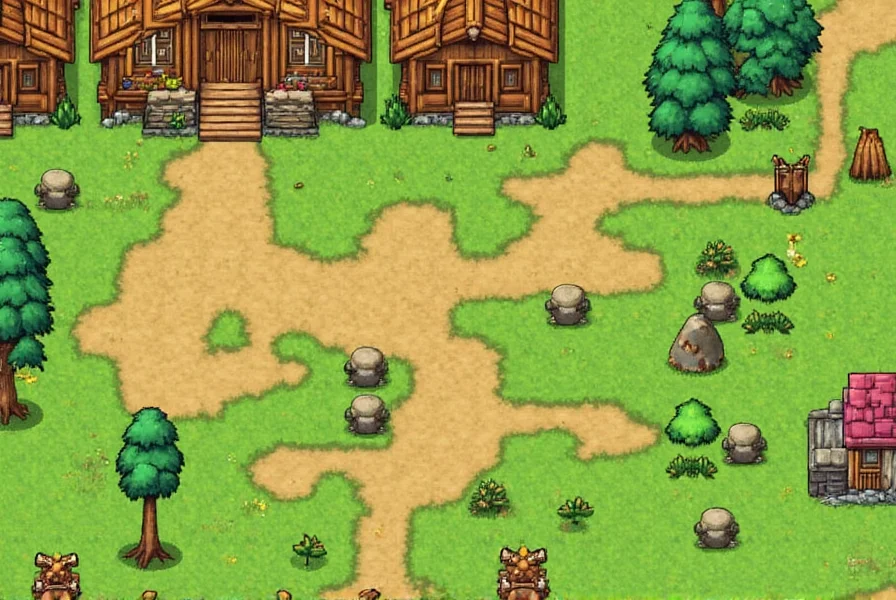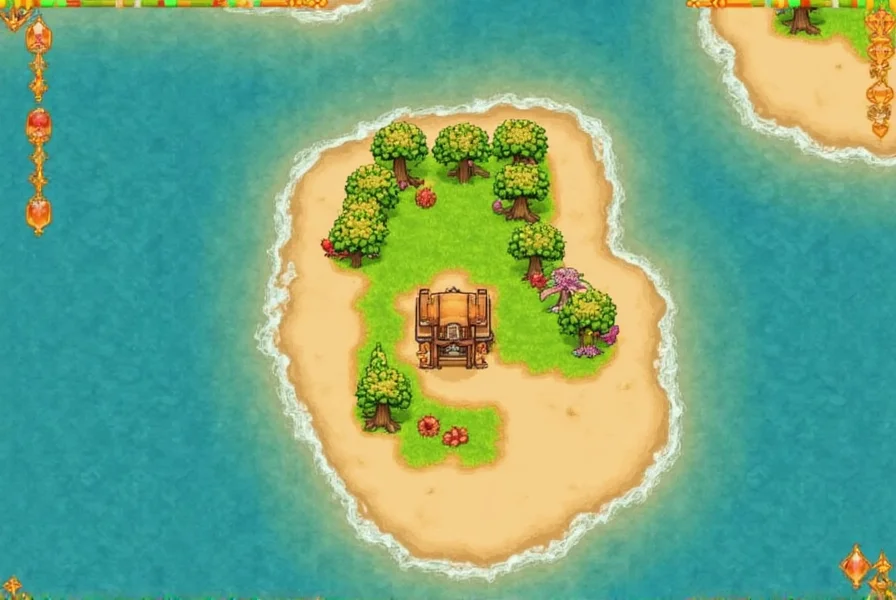If you're searching for information about ginger stardew, you're likely interested in Ginger Island, the major expansion added to Stardew Valley in the 1.5 update. This comprehensive guide covers everything you need to know about accessing and thriving on this tropical paradise, including requirements, resources, and strategic tips that will transform your late-game experience.
How to Unlock Ginger Island
Accessing Ginger Island requires completing several specific steps. First, you must reach Year 2 in the game and have repaired the bus. The critical trigger occurs when Willy contacts you via letter about mysterious debris washing ashore near his shop. This begins the Ginger Island questline that ultimately unlocks the island.
After responding to Willy's letter, you'll need to:
- Visit the beach at 6am on a sunny day
- Examine the debris with Willy
- Repair the Strange Capsule using 5 Ancient Seeds, 5 Battery Packs, and 50,000g
- Complete the subsequent quest involving the tablet fragments
Once you've completed these steps, the boat at Willy's shop becomes available, allowing regular travel to Ginger Island. Note that you cannot access the island during rainy weather, so plan your trips accordingly.
Ginger Island Resources and Features
Ginger Island offers unique resources that significantly enhance your Stardew Valley experience. The island features three distinct biomes: the Beach, Jungle, and Volcano areas, each with specialized resources.
| Resource Type | Location on Island | Primary Uses |
|---|---|---|
| Ginger Root | Jungle biome | Cooking recipes, bundle completion |
| Pineapples | Jungle biome | High-value crops, artisan goods |
| Mangoes | Jungle biome | Cooking, gift giving |
| Coconuts | Beach biome | Animal feed, crafting |
| Dragon Fruit | Volcano biome | High-profit crop |
One of the most valuable aspects of ginger island stardew valley is the ability to grow tropical crops year-round. Unlike your main farm, the island operates on a permanent summer season, allowing continuous cultivation of Pineapples, Ginger, and other tropical plants regardless of the current season in Pelican Town.
Strategic Considerations for Ginger Island
While Ginger Island offers tremendous opportunities, effective management requires careful planning. Many players make the mistake of rushing into island development without proper preparation, leading to wasted resources and missed opportunities.
Consider these strategic elements when developing your ginger stardew island strategy:
- Resource Prioritization: Focus first on clearing the jungle area to access Ginger and Pineapple seeds, which provide immediate returns
- Animal Integration: The island supports unique animals like Ostriches (once you complete the Volcano Dungeon) that produce valuable Ostrich Eggs
- Tool Upgrades: Before extensive clearing, ensure you have at least a Steel Axe and Pickaxe to efficiently remove obstacles
- Storage Management: Build multiple chests early to prevent inventory overflow during resource gathering
One often overlooked aspect of ginger island stardew valley guide strategies is the importance of completing the Volcano Dungeon. This challenging area contains valuable resources, the Junimo hut for automated farming, and ultimately unlocks Ostriches as a farm animal option.
Common Mistakes to Avoid
Based on community feedback and gameplay analysis, these are the most frequent errors players make with Ginger Island:
- Ignoring the Volcano questline: Many players never complete the Volcano Dungeon, missing out on Ostriches and other valuable rewards
- Poor resource allocation: Spending too many resources on immediate building rather than establishing sustainable crop production
- Underestimating travel time: Not accounting for the time spent traveling to and from the island, which affects daily planning
- Overlooking artifact spots: Missing valuable artifact spots that can yield rare items for the museum
Remember that Ginger Island operates on its own separate save file from your main farm. This means you can develop both areas simultaneously without one affecting the other's progression, making it an excellent option for players seeking additional challenges after mastering their primary farm.
Advanced Ginger Island Strategies
For players who have mastered the basics of ginger stardew island management, consider these advanced techniques:
- Establish a dedicated seed production area for Pineapples and Ginger to create a self-sustaining crop cycle
- Use the Junimo hut in the Volcano area to automate crop harvesting, significantly increasing efficiency
- Develop a specialized animal area for Coconuts to feed your Ostriches, creating a closed-loop production system
- Time your visits to coincide with festival days in Pelican Town to maximize daily productivity
The true value of Ginger Island becomes apparent in the late game, where it provides essential resources for completing the Crafts Room bundles, creating high-value artisan goods, and generating substantial income through specialty crops that aren't available on the mainland.

Integrating Ginger Island with Your Main Farm
Successful players don't treat Ginger Island as a separate entity but integrate it strategically with their main farm operations. Consider these integration techniques:
- Use Ginger Island for high-value specialty crops while maintaining staple crops on your main farm
- Process Ginger Island resources into artisan goods on your main farm to maximize space efficiency
- Balance your daily schedule between mainland responsibilities and island development
- Leverage island resources to complete Community Center bundles that require tropical items
This integrated approach to ginger island stardew valley management ensures you're maximizing your overall productivity rather than creating an isolated secondary farm that competes with your primary operations.
Frequently Asked Questions
Can you live on Ginger Island permanently in Stardew Valley?
No, Ginger Island functions as an additional location you visit from your main farm. You cannot relocate your farmhouse to Ginger Island or make it your primary residence. The island operates as a separate area that you travel to from Willy's boat at the beach.
What's the fastest way to get rich using Ginger Island?
The most profitable strategy involves growing Pineapples and processing them into Wine. Pineapples sell for 450g each raw, but Pineapple Wine sells for 1,800g per bottle. With the Junimo hut automating harvests in the Volcano area, this creates a highly efficient, hands-off income stream that significantly outperforms most mainland crops.
Do crops on Ginger Island grow faster than on the main farm?
Crops on Ginger Island grow at the same rate as they would during summer on your main farm. The key advantage is that Ginger Island maintains permanent summer conditions, allowing tropical crops like Pineapples and Ginger to grow year-round regardless of the current season in Pelican Town.
Can you get married characters to visit Ginger Island?
No, your spouse and other villagers from Pelican Town cannot visit Ginger Island. The island has its own unique NPCs like the Island Trader and the Volcano Dwarf, but mainland villagers remain confined to their respective areas. This separation maintains the distinct identity of Ginger Island as a separate location.











 浙公网安备
33010002000092号
浙公网安备
33010002000092号 浙B2-20120091-4
浙B2-20120091-4